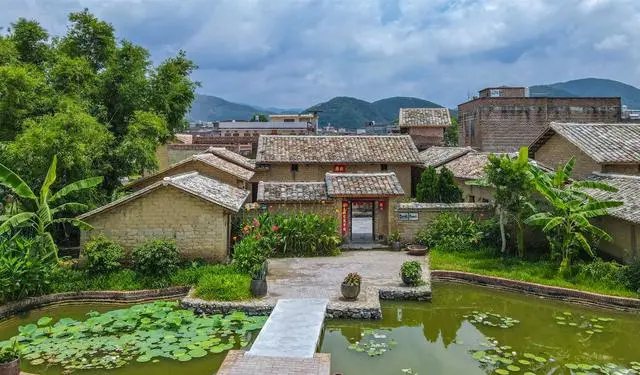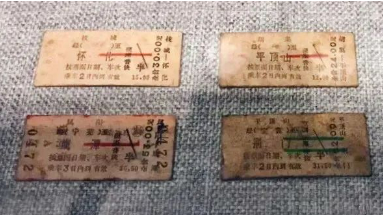Philippines looks forward to benefiting from RCEP mega-trade deal
MANILA, Feb. 22 (Xinhua) -- Philippine officials expressed optimism on Wednesday that the Philippines will reap the benefits from the Regional Comprehensive Economic Partnership (RCEP) agreement after the Philippine Senate ratified the mega-regional trade deal.
The government economic managers said RCEP, which entered into force on Jan. 1, 2022, is a timely tool to foster regional integration and economic growth as the Asia-Pacific region and the world recover from the COVID-19 pandemic.
National Economic and Development Authority Secretary Arsenio M. Balisacan lauded the Senate for taking the "bold and game-changing move" of approving the pact, which "will provide another engine for growing the Philippine economy and making it part of a rapidly rising Asia."
Balisacan likened RCEP to "a vehicle that would drive (the Philippine) economy's sustained growth through regional and global trade as well as through greater investment in strategic sectors."
He said being part of RCEP will further enhance the Philippines' market access, placing the country at par with other RCEP-participating countries and the world's largest economies, such as China, Japan and South Korea.
"With the country's participation in RCEP, the Philippines has further strengthened its position as an ideal investment hub in the region as we expand market access, facilitate trade, and align our rules and procedures with participating economies," he said.
In line with the overall goals of the Philippine Development Plan 2023-2028, the minister said robust business expansion and investment will lead to more, higher quality and more resilient jobs that will be key to rapid and sustained poverty reduction.
RCEP is a massive free trade agreement (FTA) involving Australia, China, Japan, South Korea, New Zealand, and the 10 members of the Association of Southeast Asian Nations -- Brunei, Cambodia, Indonesia, Laos, Malaysia, Myanmar, the Philippines, Singapore, Thailand and Vietnam. It is the world's largest free trade area representing 30 percent of the global gross domestic product (GDP).
Philippine officials said RCEP covers roughly 50.4 percent of the Philippines' export markets, 67.3 percent of the country's import sources, and 58 percent of foreign direct investment.
Finance Secretary Benjamin Diokno said joining RCEP will result in a stable and predictable business environment to attract more investments in the Philippines and safeguard the country's investments abroad. "The agreement will also support micro, small and medium enterprises (MSME) development and drive participation in the global value chain."
According to Diokno, zero or lower import tariffs for Philippine exports such as agricultural products, automotive parts and garments would give the Southeast Asian country more access to bigger product markets.
Philippine manufacturers would also benefit from wider sources of raw materials due to zero or lower import duties on their inputs and more flexibility in the rules of the FTA on product manufacturing.
Skilled Filipino professionals and business persons in legal, construction, engineering, and banking services will be given preferential treatment to practice their professions in participating nations.
Senate President Juan Miguel Zubiri said participation in RCEP is expected to lead to a 2.02-percent increase in real GDP, according to a study by Francis Quimba, research fellow at the Philippine Institute for Development Studies (PIDS).
Anna Malindog-Uy, vice president of the Manila-based think tank Asian Century Philippines Strategic Studies Institute, said the Philippines' ratification is "a welcome positive development," adding the trade deal "will yield tangible benefits" for the country.
"Most importantly, RCEP will provide the Philippine exporters with sources from 14 countries, including the country's top import sources of raw materials, China and ASEAN. RCEP will also allow Philippine traders to source intermediate goods from any of the 14 RCEP members-countries with only one certification of origin and will significantly improve the overall business environment of the Philippines," she added.
In September 2021, former Philippine President Rodrigo Duterte ratified the RCEP Agreement and brought it to the Senate for concurrence. But the Senate failed to ratify the agreement in December 2021 before the free trade deal took effect on Jan. 1 last year.
In the Philippines, treaties or international agreements entered into by the government require Senate concurrence.
On Tuesday night, the Senate approved the a resolution ratifying the RCEP agreement. Senate Resolution No. 485 was approved on the third and final reading, with 20 affirmative votes, one negative vote and one abstention.
Photos
Related Stories
- RCEP contributes to global trade, investment growth in past year
- RCEP boosts trade growth amid gloomy global outlook
- One year on, RCEP bolsters post-pandemic economic recovery
- Infographics: First anniversary of RCEP implementation unleashes huge energy and opportunities
- RCEP highlighted for promoting global trade
- China explores ways to unleash more potential
- RCEP, BRI boost Cambodia's socioeconomic, trade development: officials
- Openness an intrinsic path toward global prosperity and development
- Nearly 7 bln USD of goods benefit from RCEP in Shanghai
- Cambodia's trade with RCEP countries up 7 pct in first 11 months last year
Copyright © 2023 People's Daily Online. All Rights Reserved.









